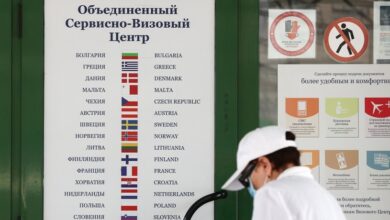
The Reporters Without Borders (RWB) in its 2014 World Press Freedom Index has revealed that conflict-ridden Afghanistan is safer for journalists than India, Pakistan, Russia, Singapore and Malaysia.
Islamabad, Feb 12/Nationalturk – The Reporters Without Borders (RWB), which released 2014 World Press Freedom Index, spotlights major declines in media freedom with conflict-ridden Afghanistan ranking higher than India, Pakistan, Russia, Singapore and Malaysia.
The same trio of Finland, Netherlands and Norway heads the index again, while Turkmenistan, North Korea and Eritrea continue to be the biggest information black holes, again occupying the last three positions. This year’s index covers 180 countries, one more than the 179 countries covered in last year’s index. The newcomer is Belize, which has been ranked in the enviable position of 29th.
“The World Press Freedom Index is a reference tool that is based on seven criteria: the level of abuses, the extent of pluralism, media independence, the environment and self-censorship, the legislative framework, transparency and infrastructure,” said Reporters Without Borders secretary-general Christophe Deloire.
“It makes governments face their responsibilities by providing civil society with an objective measure, and provides international bodies with a good governance indicator to guide their decisions.”
Iraq ranks 173, Saudi Arabia 164, Egypt 159, Pakistan 158 and India 140
According to the index Iraq ranks 173, Sri Lanka 165, Saudi Arabia 164, Egypt 159, Pakistan, 158, Iraq 153, Singapore 150, Russia 148, Malaysia 147, Bangladesh 146, Jordan 141, India 140, Afghanistan 128, UAE 118, Qatar 113, Japan 59, United States 46, South Africa 42, France 39, United Kingdom 33 and Australia 28.
Last year Pakistan was placed 159 out of 179 countries in the index, with nine journalists killed.
The index’s annual global indicator, which measures the overall level of violations of freedom of information in 180 countries year by year, has risen slightly. The indicator has gone from 3395 to 3456 points, a 1.8% rise.
Reporters Without Borders head of research Lucie Morillon said the index also reflects the negative impact of armed conflicts on freedom of information and its actors. “The world’s most dangerous country for journalists, Syria, is ranked 177th out of 180 countries.”
Around 130 professional and citizen-journalists were killed in connection with the provision of news and information from March 2011 to December 2013. They are being targeted by both the Assad government and extremist rebel militias.
Index emphasizes negative correlation between conflicts and media freedom
The 2014 index emphasizes the negative correlation between armed conflicts and freedom of information. In an unstable environment, the media become strategic goals or targets for groups or individuals trying to control news and information in violation of the guarantees enshrined in international conventions.
In the United States (46th, -13), the hunt for leaks and whistleblowers serves as a warning to those thinking of satisfying a public interest need for information about the imperial prerogatives assumed by the world’s leading power. The United Kingdom (33rd, -3) has followed in the US wake, distinguishing itself by its harassment of The Guardian.
Write your comments and thoughts below
Asia News/ NationalTurk Pakistan News


